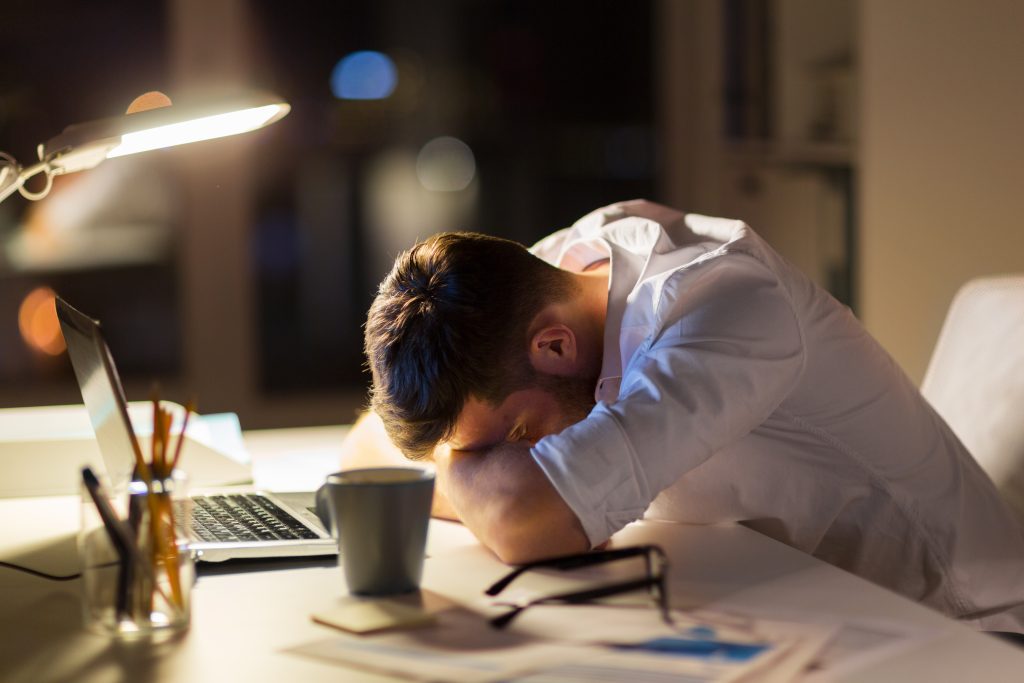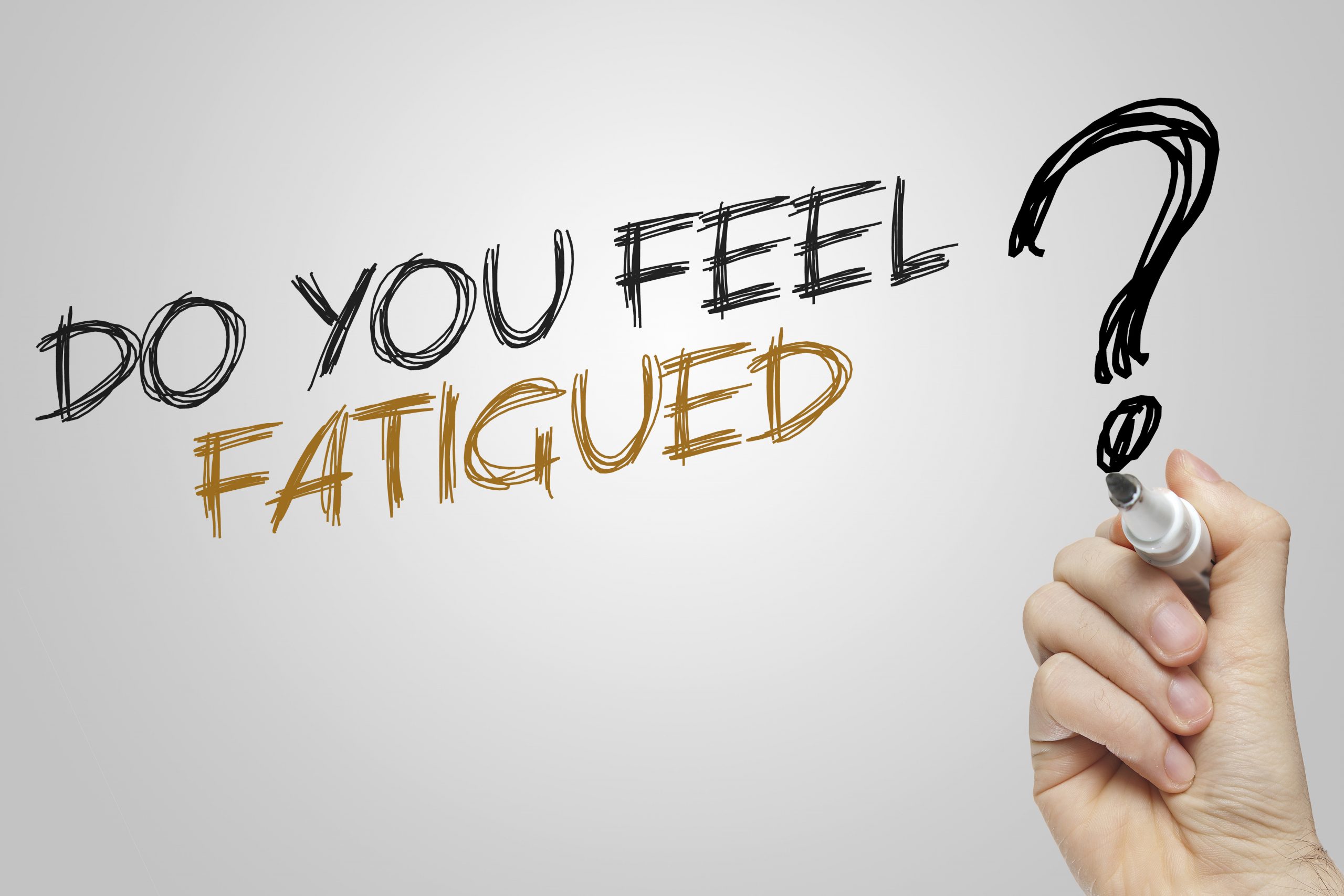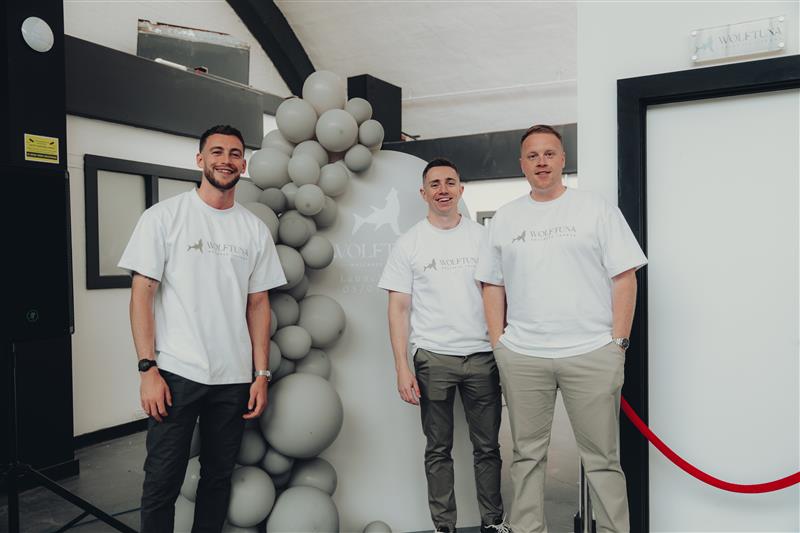GP Dr. Pamela Leggate, of Glasgow West Medical Practice, knows what it is to be ‘Tired All The Time’. So, should we shrug it off as a symptom of modern life, or is there something we can do to help ourselves?
The last article I wrote prepandemic was about tiredness, a common enough symptom at the time. I talked about the various medical causes and gave some excellent (if I say so myself) tips for getting a good night’s sleep. Then COVID-19 hit us and the music stopped. The article never made it to print. Life changed suddenly and for much much longer than we thought. A lot of us are working from home, staring at a computer screen all day. Some of us have lost our jobs or been furloughed (a word which didn’t seem to exist in 2019). We have lost contact with family and friends and are no longer able to go out and socialise the way we used to. Some of us have been ill, some very ill, some have lost loved ones. So now, more than ever, we are TIRED. Tired of life as it is (the new normal, let’s hope not). Tired of not being able to hug people, tired of not being able to go out and enjoy ourselves,tired of having to run back to the car because “l forgot my mask”.
Throughout the pandemic GP surgeries have been open, dealing with all sorts of problems, over the phone, via video link and face to face when appropriate. At the start people were understandably reluctant to attend both GP surgeries and hospitals due to the risk of infection. As time has gone, on patients are contacting us more and more frequently and a lot of them are tired all the time. They’re often concerned that there may be something serious wrong. Maybe they’ve put off contacting us because of the pandemic. Many are worried about COVID infection or long COVID, both of which can cause tiredness.
Tiredness is common. We’ve all felt tired at times. Sometimes it’s just because we’ve not had a good nights sleep and after a good rest we’re as right as rain. What is more worrying is when the tiredness persists.
Since lockdown (another word rarely used outside the jail prepandemic), we’re finding a lot of people are less active and fitness levels have deteriorated. Weight may have increased (guilty, oops!) and it might be as simple as making some lifestyle changes. I often have an afternoon “slump” and find a walk round the park much more invigorating than a nap (I have been warned off napping in my consulting room).

Quality of sleep is just as important as duration. You might think you’re getting the optimal seven or eight hours but your sleep might be interrupted by sleep apnoea or restless legs; night cramps or pain from arthritis. Tips for getting a good night’s sleep: Stick to a routine. If you go to bed at the same time every night and get up at the same time every morning (even if you’ve just managed to get to sleep half an hour earlier) the brain eventually gets the message. Keep bedrooms dark and cool and avoid electronic devices. Bright screens make your brain think that it’s time to get up and milk the cows. Try not to take caffeine or alcohol before bed as both can disturb sleep. Avoid napping in the afternoon (see above).
A note about sleep apnoea… this is when you have spells during the night when breathing stops for a moment, usually in the context of heavy snoring. It leads to waking feeling unrefreshed and daytime drowsiness. If you think this applies to you (or your partner), give your GP a call to discuss further testing.
There are several medical issues that can present with tiredness so where there is no obvious cause I often arrange blood tests to look for anaemia, diabetes, thyroid, liver or kidney problems. Normal blood tests can be reassuring for the patient and the doctor.
One important cause of tiredness is depression, which we are seeing more and more of during COVID times. You might not feel particularly low in mood but may have lost interest in things you normally enjoy (in my case shopping!), can’t be bothered doing things and can’t get motivated to do anything about it. Your doctor might want to rule out a physical problem first but after that a trial of antidepressants might be worthwhile.
If nothing else shows up and fatigue is lasting for longer than four months, you might be suffering from chronic fatigue syndrome (or a variation of it related to COVID infection). This is a complex mixture of symptoms including tiredness, sometimes muscle pains (fibromyalgia) and mood disturbance. There is no magic cure but graded exercise programmes, cognitive behavioural therapy (CBT) and some medications might help.
So to summarise, don’t despair, there is light at the end of the tunnel. If you’re tired you are not alone. Look at lifestyle factors, minimise stress and if there’s no improvement contact your GP.
Return to Articles










